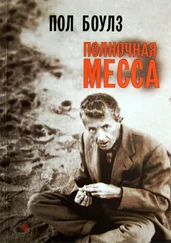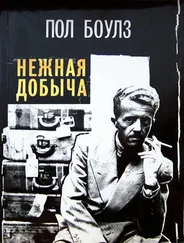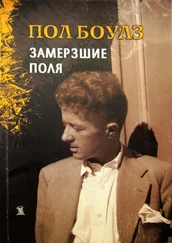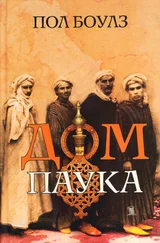Пол Боулз - Let it come down
Здесь есть возможность читать онлайн «Пол Боулз - Let it come down» весь текст электронной книги совершенно бесплатно (целиком полную версию без сокращений). В некоторых случаях можно слушать аудио, скачать через торрент в формате fb2 и присутствует краткое содержание. ISBN: , Жанр: Современная проза, на английском языке. Описание произведения, (предисловие) а так же отзывы посетителей доступны на портале библиотеки ЛибКат.
- Название:Let it come down
- Автор:
- Жанр:
- Год:неизвестен
- ISBN:1-931082-19-7
- Рейтинг книги:5 / 5. Голосов: 1
-
Избранное:Добавить в избранное
- Отзывы:
-
Ваша оценка:
- 100
- 1
- 2
- 3
- 4
- 5
Let it come down: краткое содержание, описание и аннотация
Предлагаем к чтению аннотацию, описание, краткое содержание или предисловие (зависит от того, что написал сам автор книги «Let it come down»). Если вы не нашли необходимую информацию о книге — напишите в комментариях, мы постараемся отыскать её.
Let it come down — читать онлайн бесплатно полную книгу (весь текст) целиком
Ниже представлен текст книги, разбитый по страницам. Система сохранения места последней прочитанной страницы, позволяет с удобством читать онлайн бесплатно книгу «Let it come down», без необходимости каждый раз заново искать на чём Вы остановились. Поставьте закладку, и сможете в любой момент перейти на страницу, на которой закончили чтение.
Интервал:
Закладка:
«Tell about the day».
«The day?» Old Had] Mohammed would repeat, looking deliberately, cunningly vague, and pulling at his lower lip while he rolled his eyes upward with a vacant expression. «The day? What day?»
«The day,» Thami would insist.
«Aaah!» And the old man would begin, and begin at the same time the dovening motion which accompanied the utterance of any words that were not extemporaneous. «The morning is a little boy». He made his eyes large and round. «Noon is a man». He sat up very straight and looked fierce. «Twilight is an old man». He relaxed and looked into Thami’s face with tenderness. «What do I do?» Thami knew, but he remained silent, waiting breathless, spellbound for the moment when he would take part in the ritual, his eyes unwaveringly fixed on the ivory face.
«I smile at the first. I admire the second. I venerate the last». And as he finished saying the words, Thami would seize the frail white hand, bend his head forward, and with passion press his lips against the back of the fingers. Then, renewed love in his eyes, the old man would sit back and look at his son. Abdallah once had spied on this game (of the brothers he was the nearest Thami’s age, being only a year older), and later when he got him alone, he had subjected Thami to a series of tortures which the boy had borne silently, scarcely offering resistance. It seemed to him a small enough price to pay for his father’s favor. «And if you tell Father I’ll tell Abdelftah,» Abdallah had warned him. Abdelftah would devise something infinitely worse — of that they were both certain — but Thami had laughed scornfully through his tears. He had no intention of telling; to bring to his father’s attention the fact that the others could be jealous of his participation in this sacred game would have meant to risk losing his privilege of playing it.
Later it was the streets, the hidden cafés at Sidi Bouknadel that closed their doors leaving the boys inside sitting on mats playing ronda and smoking kif and drinking cognac until morning; it was the beach where they played football and, pooling their money, would rent a caseta for the season, which they used for drinking competitions and the holding of small private orgies whose etiquette demanded that the younger boys be at the entire disposal of the older ones. And above all it was the bordels. By the time Thami was eighteen he had had all the girls in all the establishments, and a good many more off the street. He took to staying away from home for several days at a time, and when he returned it would be in a state of dishevelment which infuriated his brothers. After his sixth arrest for drunkenness Abdelmalek, who was now the head of the family, Abdelftah having moved to Casablanca, gave orders to the guards of the house to refuse him entrance unless he was in a state of complete sobriety and properly dressed. This meant, more than anything else, that he would no longer receive his daily spending money. «This will change him,» he said confidently to Hassan. «You’ll see the difference very soon». But Thami was more headstrong and resourceful than they had suspected. He found ways of living — what ways they never knew — without needing to return home, without having to forego the independence so necessary to him. And since then he never had gone back, save now and then for a moment of conversation with his brothers at the entrance door, usually to ask a favor which they seldom granted. There was nothing basically anti-social about Thami; hostility was alien to him. He merely had expended almost all his capacities for respect and devotion upon his father, so that he could not give the traditional amount of either to his brothers. Also he would not agree to pretend. He did not respect them, and he had had too much contact with European culture to believe he was committing a sin in refusing to feign a respect which custom demanded but which he did not feel.
It was at the annual moussem of Moulay Abdeslam, where serious men go for the good of their souls, that Thami had met Kinza, among the tents and donkeys and fanatical pilgrims. The situation was one with which Moslem tradition is totally unprepared to deal. Young men and women cannot know each other, and if by some disgraceful chance they happen to have managed to see each other alone for a minute, the idea is so shameful that everyone forgets it immediately. But to follow it up, to see the girl again, to suggest marrying her — it would be hard to conceive of more outrageous conduct. Thami did all these things. He went back to Agla at the same time as she did, got to know the family, who were naturally much impressed with his city ways and his erudition, and wrote to Abdelmalek saying that he was about to be married and thought it time he received his inheritance. His brother’s reply was a telegram bidding him return to Tangier at once to discuss the matter. It was then that the two had their serious falling-out, since Abdelmalek refused outright to let him touch his money or his property. «I’ll go to the Qadi,» threatened Thami. Abdelmalek merely laughed. «Go,» he said, «if you think there is anything about you he doesn’t already know». In the end, after lengthy discussions with Hassan, who thought marriage, even with a shamefully low peasant girl, might possibly be a means of changing Thami’s ways, Abdelmalek gave him a few thousand pesetas. He fetched the whole family from Agla and they had a wedding in Emsallah, the humblest quarter of Tangier, all of which nevertheless seemed magnificent to Kinza and her tribe. In due time all but the bride returned to the farmhouse on the mountain above Agla, where they lived working their fields, gathering the fruit from their trees and sending the children to tend the goats on the heights above.
To them Thami was a glamorous, important figure, and they had been overjoyed to see him come knocking at the door the previous evening. They were not so pleased, however, to learn that he had a Nazarene with him, up in the other house, and although he had managed last night to slide over it by talking of other things and then leaving suddenly, he could see that his father-in-law had not finished expressing his views on the subject.
At the house they told him that the men were down in the orchard. He followed the high cactus fence until he came to a gate made of sheet tin. When he knocked, the sound was very loud, and it was with a certain amount of mild apprehension that he waited for someone to come. One of the sons let him in. An artificial stream ran through the orchard, part of the system which irrigated the entire valley with the spring water that came out of the rocks above the town. Kinza’s father was watering the rose-bushes. He hurried back and forth, his baggy trousers hitched above his knees, stooping by the edge of the channel to fill an ancient oil can that spouted water from all corners, running with it each time, to arrive before it was empty. When he saw Thami he ceased his labors, and together they sat down in the shade of a huge fig tree. Almost immediately he brought up the subject of the Nazarene. Having him in the house would make trouble, he predicted. No one had ever heard of a Spaniard living in the same house with a Moslem, and besides, what was the purpose, what was the reason for such a thing? «Why doesn’t he stay at the fonda at Agla like all the others?» he demanded. Thami tried to explain. «He’s not a Spaniard,» he began, but already he foresaw the difficulties he was going to meet, trying to make the other understand. «He’s an American». «Melikan?» cried Kinza’s father. «And where is Melika? Where? In Spain! Ah! You see?» The oldest son timidly suggested that perhaps the Nazarene was a Frenchman. Frenchmen were not Spaniards, he said. «Not Spaniards?» cried his father. «And where do you think France is, if it’s not in Spain? Call him Melikan, call him French, call him English, call him whatever you like. He’s still a Spaniard, he’s still a Nazarene, and it’s bad to have him in the house». «You’re right,» said Thami, deciding that acquiescence was the easiest way out of the conversation, because his only argument at that point would have been to tell them that Dyar was paying him for the privilege of staying in the house, and that was a detail he did not want them to know. The old man was mollified; then, «Why doesn’t he stay at the fonda, anyway? Tell me that,» he said suspiciously. Thami shrugged his shoulders, said he did not know. «Ah! You see?» the old man cried in triumph. «He has a reason, and it’s a bad reason. And only bad things can happen when Nazarenes and Moslems come together».
Читать дальшеИнтервал:
Закладка:
Похожие книги на «Let it come down»
Представляем Вашему вниманию похожие книги на «Let it come down» списком для выбора. Мы отобрали схожую по названию и смыслу литературу в надежде предоставить читателям больше вариантов отыскать новые, интересные, ещё непрочитанные произведения.
Обсуждение, отзывы о книге «Let it come down» и просто собственные мнения читателей. Оставьте ваши комментарии, напишите, что Вы думаете о произведении, его смысле или главных героях. Укажите что конкретно понравилось, а что нет, и почему Вы так считаете.









